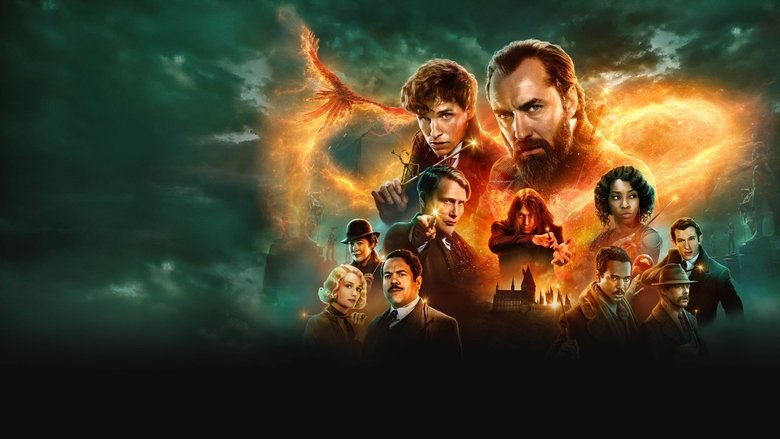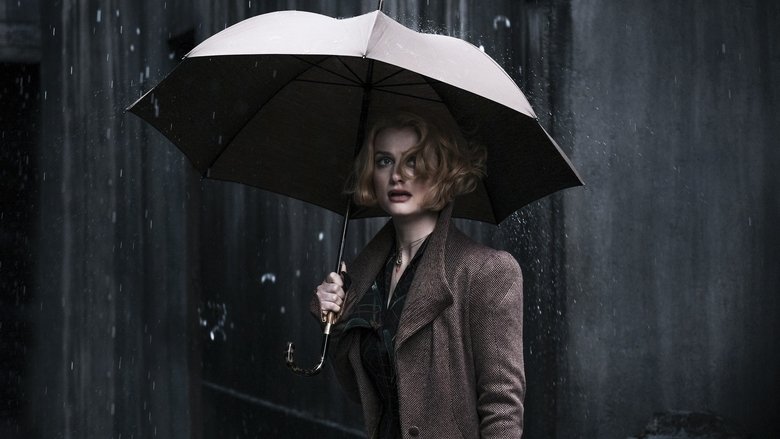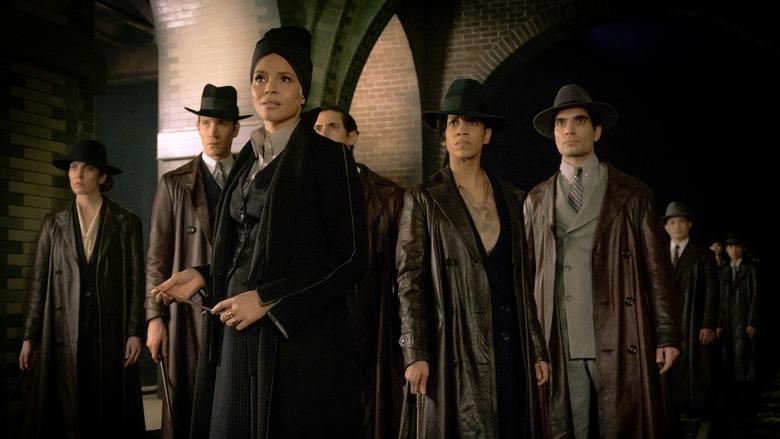complete guide to the harry potter and fantastic beasts movie series
Explore the magical world of Harry Potter and its expanding universe through the complete series of films. From the first steps at Hogwarts to the thrilling adventures in Fantastic Beasts, this guide covers all the essential movies in order.



The Harry Potter film series, based on J.K. Rowling's beloved books, revolutionized fantasy cinema when it began in 2001 with "Harry Potter and the Philosopher's Stone." Spanning eight films, the series follows Harry's growth from a young wizard discovering his heritage to facing dark forces threatening the magical world. Notably, the franchise boasts an impressive continuity of cast and crew, with actors like Daniel Radcliffe, Emma Watson, and Rupert Grint growing alongside their characters. The movies blend rich storytelling with groundbreaking visual effects, setting new standards for adapting literary fantasy.
The "Fantastic Beasts" series expands the universe further, delving into the wizarding world's history decades before Harry's time. Starting with "Fantastic Beasts and Where to Find Them" in 2016, these films introduce new characters and darker themes, including the rise of Grindelwald, portrayed by compelling performances that add depth to the lore. The combination of enchanting creatures, political intrigue, and magical duels enriches the franchise's appeal.
Together, these films offer a diverse cinematic experience—from the wonder of discovery and friendship in the early Harry Potter movies to the complex, mature narratives of the later installments and spin-offs. For fans and newcomers alike, understanding the progression and connections within this universe enhances the appreciation of its storytelling craft and cultural impact.
11. Fantastic Beasts: The Secrets of Dumbledore (2022)
The third installment in the Fantastic Beasts series, directed by David Yates, sees Dumbledore entrusting Newt Scamander and a diverse team to disrupt Gellert Grindelwald's plans for global domination. The film takes the characters to new locations, including Bhutan and Germany, as the magical and non-magical worlds edge closer to war.
This movie focuses heavily on Dumbledore's complex past and his connection to Grindelwald, revealing long-held secrets. It features creative magical set pieces and further develops the relationships within Newt's eclectic group.
It provides more insight into the Dumbledore family history and navigates the political maneuvering and escalating conflict in the wizarding world during this era.

10. Fantastic Beasts: The Crimes of Grindelwald (2018)
The second film in the Fantastic Beasts series, directed by David Yates, delves deeper into the conflict between Albus Dumbledore and the dark wizard Gellert Grindelwald. Set primarily in Paris, the story follows Newt Scamander as he is drawn into Dumbledore's fight against Grindelwald's growing power.
The film expands the lore surrounding Dumbledore's family and introduces new characters while bringing back familiar faces. It explores themes of identity, loyalty, and the choices people make when faced with a charismatic, dangerous leader.
It's a film that significantly broadens the historical scope of the wizarding world, exploring a turbulent period leading up to a global magical conflict.

9. Fantastic Beasts and Where to Find Them (2016)
Set decades before Harry Potter's story, this film introduces us to Newt Scamander, a shy British magizoologist who travels to 1920s New York with a suitcase full of magical creatures. Directed by David Yates, it expands the wizarding world beyond the UK, exploring American magical society and its unique challenges.
The film is visually stunning, bringing to life a host of fascinating beasts and the bustling, hidden magical world of New York. Eddie Redmayne is endearing as Newt, and the supporting cast, including Katherine Waterston, Dan Fogler, and Alison Sudol, add depth and charm.
It's a delightful adventure that blends creature-hunting escapades with a burgeoning dark threat, serving as an engaging entry point into a new era of the wizarding world.

8. Harry Potter and the Deathly Hallows: Part 1 (2010)
The penultimate film, directed by David Yates, takes Harry, Ron, and Hermione out of the relative safety of Hogwarts and on a desperate search for Horcruxes to defeat Voldemort. This film is a road movie within the wizarding world, focusing on the trio's isolation and the challenges they face on their journey.
It's a darker, more character-driven film that emphasizes the bonds between the three friends as they face hardship and doubt. The animation sequence explaining the Tale of the Three Brothers is a beautiful stylistic departure.
This part is essential setup for the grand finale, building tension and exploring the emotional toll of their mission before the climactic battle.

7. Harry Potter and the Order of the Phoenix (2007)
Directed by David Yates, this film sees Harry grappling with the Ministry of Magic's denial of Voldemort's return and the oppressive presence of Dolores Umbridge at Hogwarts. It's a story about rebellion, disillusionment, and the struggle for truth in the face of authority.
The film introduces the Order of the Phoenix, a secret society fighting against Voldemort, and explores Harry's emotional turmoil and anger. Imelda Staunton's portrayal of Umbridge is particularly chilling. The sequences in the Department of Mysteries are visually striking, showcasing new aspects of the magical world and the dangers within it.
This installment highlights themes of political corruption and institutional denial, pushing the characters to stand up for what they believe in.

6. Harry Potter and the Half-Blood Prince (2009)
Directed by David Yates, this sixth film delves into Voldemort's past and his rise to power, primarily through Dumbledore and Harry exploring crucial memories using the Pensieve. It's a film focused heavily on character relationships and backstory, setting the stage for the final confrontation.
The tone is notably darker, with the wizarding world facing increasing threats from the Death Eaters. The film balances its serious themes with moments of teenage romance and humor, capturing the complexities of the characters' lives as they navigate both magical dangers and adolescence.
It's a pivotal film for understanding Voldemort's origins and Dumbledore's strategies, building tension towards the impending war.

5. Harry Potter and the Chamber of Secrets (2002)
The second film in the series, also directed by Chris Columbus, sees Harry return to Hogwarts for his second year, only to find that a mysterious force is petrifying students. The legend of the Chamber of Secrets and Salazar Slytherin's monster takes center stage.
This installment delves deeper into the history of Hogwarts and introduces characters like Dobby the house-elf and Gilderoy Lockhart, providing both comic relief and crucial plot points. The flying car sequence is an early highlight, and the final confrontation in the Chamber is suitably intense.
It expands upon the world established in the first film, adding layers to the lore and beginning to hint at the darker forces at play beneath the surface of the magical world.

4. Harry Potter and the Philosopher's Stone (2001)
Where the magic all began! Directed by Chris Columbus, this film charmingly introduces us to the world of Harry Potter, a young orphan who discovers he is a wizard and is invited to attend Hogwarts School of Witchcraft and Wizardry.
The film perfectly captures the wonder and whimsy of the first book, bringing to life iconic locations like Diagon Alley, the Great Hall, and the Quidditch pitch. The casting of Daniel Radcliffe, Rupert Grint, and Emma Watson as the central trio was spot-on, and their chemistry is undeniable from the start.
It's a foundational film that lays the groundwork for the entire saga, filled with delightful details and the start of enduring friendships and rivalries.

3. Harry Potter and the Goblet of Fire (2005)
This film plunges Harry Potter into a darker, more dangerous world as he is unexpectedly entered into the Triwizard Tournament, a perilous competition between three magical schools. Directed by Mike Newell, it marks a significant turning point where the series sheds some of its earlier innocence and embraces more complex, often frightening, themes.
The challenges of the tournament are visually spectacular, from facing a dragon to navigating a treacherous maze. We're introduced to new magical schools, Beauxbatons and Durmstrang, adding to the expanding wizarding world. The film also features the return of Voldemort in a truly terrifying form, solidifying the threat he poses.
It's a film packed with action and crucial plot developments that propel the story towards its darker future.

2. Harry Potter and the Deathly Hallows: Part 2 (2011)
The epic conclusion to the Harry Potter saga delivers a powerful and emotionally charged finale that fans had waited a decade to see. Directed by David Yates, this film focuses entirely on the final confrontation between Harry and Voldemort, culminating in the Battle of Hogwarts.
The scale is immense, the stakes couldn't be higher, and the film does an excellent job of bringing countless plot threads and character arcs to a satisfying close. Scenes like Snape's Pensieve sequence are incredibly impactful, offering crucial context and emotional depth.
It's a thrilling, action-packed, and ultimately moving send-off to the characters we grew up with, showcasing the bravery and sacrifice required to defeat the darkest forces.

1. Harry Potter and the Prisoner of Azkaban (2004)
Often cited as the film where the Harry Potter series truly found its cinematic footing, this installment is a masterpiece directed by Alfonso Cuarón. He brought a darker, more atmospheric, and visually stunning approach that set the tone for the rest of the saga.
Cuarón encouraged the young cast to write essays about their characters, deepening their understanding and performance. The introduction of key characters like Sirius Black, Remus Lupin, and the Dementors elevates the stakes considerably. It's the first time we see Hogwarts truly feel like a lived-in, slightly chaotic, and utterly enchanting school, with students in casual clothes and dynamic camera work exploring its depths. The time-turner sequence is ingeniously handled, and the score by John Williams takes on a more complex, slightly melancholic feel.
This film is a stylistic triumph that marked a significant shift towards the more mature themes the series would explore.

